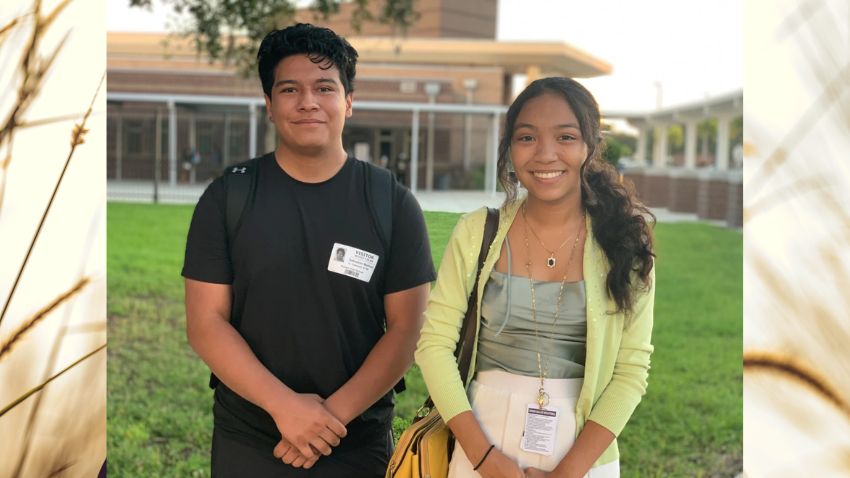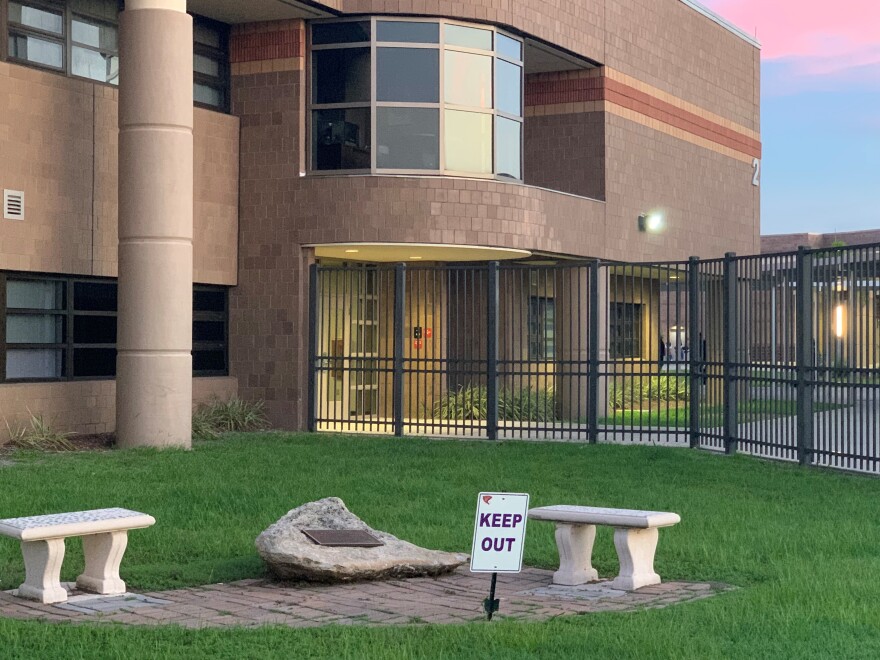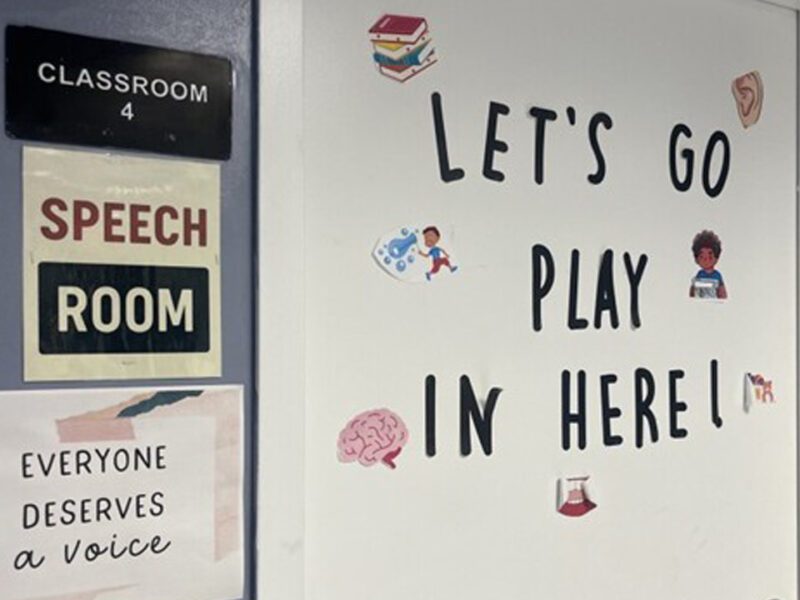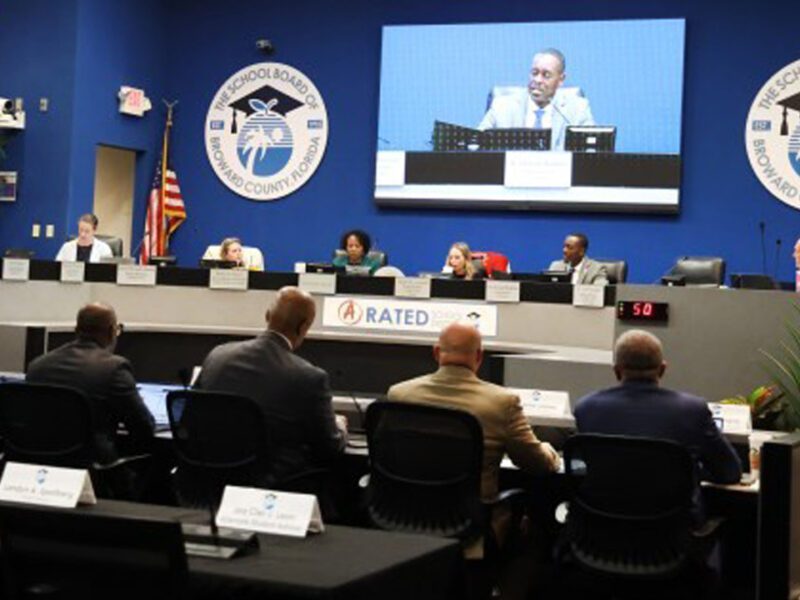
‘We are not being indoctrinated.’ Students, teachers say Florida’s new education laws stifle schools
WUSF | By Kerry Sheridan | August 25, 2022
The Stop Woke Act, Parental Rights in Education law, and new rules about curriculum transparency are changing school practices across the state.
A series of new laws in Florida that bolster parental rights in education, call for curriculum transparency and say no one should be taught to feel guilt for actions in the past by those of the same race or sex, are stifling educators and creating problems in the classroom, according to some teachers and students.
“We have drawn a very clear line in the sand that says our school system is for educating kids, not indoctrinating kids,” said Gov. Ron DeSantis in July at the Moms for Liberty conference in Tampa. He would repeat that refrain as he campaigned for conservative school board members across the state ahead of the Aug. 23 primary election.
But as buses rolled into Booker High School on a recent Friday morning, just over a week into the school year, senior Nora Mitchell took issue with the governor’s words.
“We are not being indoctrinated,” said Mitchell. “Students actually care about these issues. We just want the issues of our BIPOC community of our LGBTQ plus community, we want those issues to be illustrated in the classroom, and we want schools to be safe again.”
Since the start of the year on Aug. 10, “the energy on campus has changed. Teachers are frustrated, they are stressed out, and understandably so,” Mitchell said. “They can’t teach to the fullest extent. Teachers who want to teach about all encompassing issues, talk about current events, they are prevented from doing so.”
Sebastian Martinez, who graduated from Booker in 2021 and returned for a visit with teachers and friends on Friday, said “legislation like this definitely moves us backwards. It’s socially regressive and dangerous to all students.”
The law’s vague wording has created a lot of uncertainty, according to Gail Foreman, who teaches history at Booker High. Now, students that want to be called a different name or pronoun must ask a counselor and the principal, who must ask the parents, who can grant or deny permission.

“I have a lot of students that would use preferred names, and they can’t use them until we get the paperwork done. So I’m using last names,” said Foreman.
The changes are due to the new Parental Rights in Education law, sometimes called “Don’t Say Gay.” It says all parents must be notified of any change to their child’s mental, physical or emotional well-being.
“My gay kids and my transgender kids seem awfully quiet this year. And it’s worrying me, because one of them asked me yesterday, ‘Miss Foreman, are we really safe on this campus? Are we going to start dealing with gay bashing, homophobia?’ I said, ‘No, you’re safe in the building, we’re going to provide safety for all of our students.’ But in my heart, I don’t know that that’s true.”
Sarasota district officials denied a reporter’s request to visit a classroom. So Foreman and Jeremy Baldwin, who teaches government and economics at Booker High, agreed to meet early one morning before school started on a sidewalk outside the school.
“It’s really frustrating being vocal about it out here, and then being in the classroom with the kids who need to get that acknowledgement and I have got to be sterile. I can’t say anything to affirm them or support them,” Baldwin said.
Last year, Baldwin was asked to remove a flag in his classroom that had rainbow colors and the word “co-exist.” This year, he said the changes have been extensive.
“Everything that we teach in the classroom has to be documented. So from day one, I’m supposed to know what I’m going to do on the last day of school and be able to document every site I use, every text I use. And our classroom libraries are off the table, they’re gone, because we have to have a media specialist — who are not even employed in Sarasota — look at each and vet all of our materials and there’s no one there to do it. So the books are basically all banned,” said Baldwin
Some teaches have taken additional steps to keep students from accessing books in their classrooms, Foreman said.
“Some of us have covered our bookcases up with paper. I just told the kids it’s off limits,” she said. “I have tape up and they took it down yesterday. I went and got some police tape. So I’m going to put that up today.”

The Sarasota school district has frozen the purchase of new library books, and stopped accepting donated books, even dictionaries, until they can hire media specialists to vet each book.
“All books added (purchased, donated, or otherwise made available) to a school media center, classroom library or included on a school or grade level reading list, regardless of how they are obtained, must be selected by an employee with a valid education media specialist certificate. This includes both school and staff-based purchases,” said guidance issued to school leaders by the Sarasota district this summer.
Asked for clarification about the policy, a Sarasota school district spokeswoman said Monday that “there hasn’t been any district guidance asking teachers to cover, or prevent access to, classroom libraries. Rather, the suggestion was that teachers with classroom libraries are familiar with the contents of the books, that they’ve communicated to parents that a classroom library is available to their students, and to ensure the subject matter in those books is both age and grade level appropriate.”
In nearby Pinellas County, the district said classroom teachers need not remove their classroom libraries, and issues of students’ pronouns there are being handled on a case by case basis.
“These laws are meant to create confusion, are meant to create chaos and they are doing that,” said Andrew Spar, president of the state’s largest teacher’s union, known as the Florida Education Association.
“But overwhelmingly parents see these laws as distractions away from what matters and we should focus on what matters, which is our kids,” Spar said.

Some teachers are vowing not to change how they teach, like Brandt Robinson, who teaches history at Dunedin High School and is in his 26th year of teaching.
“I am not really going to change — not only anything that I teach but I am not going to change the way I teach about it because I am really confident that my students understand that it doesn’t matter how they feel about a political issue. The most important thing is that they feel valued,” Robinson said.
He said he does worry, however, about his younger colleagues.
“Particularly teachers that are newer to the profession and how it might lead them to feel like they need to modify or maybe perhaps ‘Oh, I am not going to do that strategy’ or ‘I am not going to have my students read this primary source,’ because as you know teachers ever since 2011 in Florida are on annual contract, so the future of their profession is just more tenuous by definition these days,” Robinson said.
Florida school districts are waiting for more detailed guidance from the state department of education, and that could take awhile. In the meantime, a number of legal challenges have been filed against the new laws.





